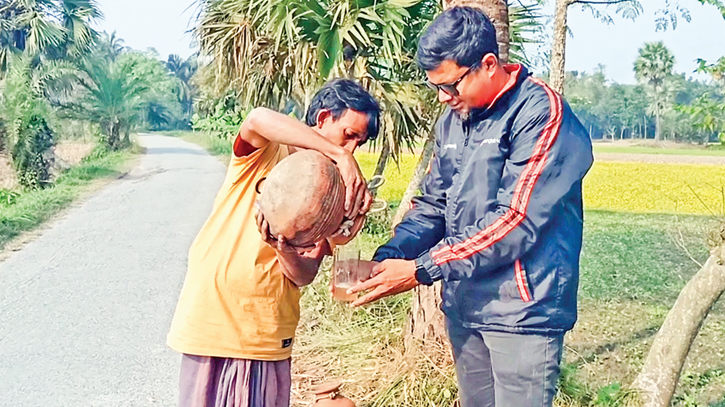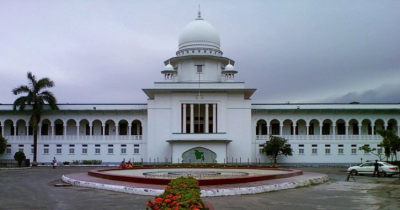
Photo : Messenger
The Institute of Epidemiology, Disease Control, and Research (IEDCR) reports that 14 people have been affected by the Nipah virus in the country in the past year, with 10 of them succumbing to the illness. The primary cause of transmission for this virus is believed to be the consumption of raw date palm sap.
Even during the cold season, date palm sap collection remains prevalent in Magura, keeping the sap collectors busy. However, there's a lack of awareness among these collectors regarding the potential risks associated with consuming raw sap that might be infected with the deadly Nipah virus.
The Health Department in Magura is actively working to raise awareness among people to avoid consuming raw sap. However, there is a lack of widespread dissemination of information that could help prevent the spread of the virus in rural areas.
Magura district reportedly has 108,108 date palm trees and 52,035 toddy palm trees. Despite a lower count in urban areas, the villages boast a substantial number of these trees, leading many locals to make collecting date palm sap their profession for an extended period of time. They collect sap by hanging pots on the trees in the morning and then replacing them the next day. These pots, lacking covers or screens, often attract various animals, including birds, which can contaminate the sap. The collected sap is used to produce molasses and jaggery, while the raw sap is sold openly in markets.
Despite the potential risk of the Nipah virus spreading through the collection and sale of raw sap, the collectors, vendors, and buyers seem unaware of these dangers. Even those who have been involved in the trade for decades have not been cautioned against selling raw sap.
Two collectors, Adil Uddin Khan and Nizam, with over 50 years of experience each, mentioned that they were unaware of the possibility of the Nipah virus transmitting through raw sap. They have been selling the sap to various markets without being informed about such risks.
Anisur Rahman, a representative of a marketing company in Khalupara, Magura Sadar, mentioned having consumed raw sap happily in the past year without considering the possibility of viruses, believing that nothing serious would happen. He further noted that there is no visible awareness campaign about the potential dangers of virus transmission through raw sap consumption in rural areas.
Shamim Ahmed Khan, a poet and journalist from the same area, emphasised the necessity of raising awareness about the risks posed by consuming raw sap. He highlighted the importance of visual aids and information from the Health Department to educate villagers and discourage the purchase of raw sap.
Dr. Shamim Kabir, the Civil Surgeon of Magura, mentioned that although no cases of Nipah virus infection have been reported in the district, various initiatives are underway to raise awareness among healthcare workers and the public to prevent consumption of raw date palm sap.
Therefore, despite efforts by the Health Department to alert people about the potential risks associated with raw sap consumption, there remains a significant lack of awareness among collectors and consumers in Magura district.
Messenger/Kashimur/Shahin








